跨文化交际翻译系列讲座共19页
- 格式:ppt
- 大小:2.17 MB
- 文档页数:19
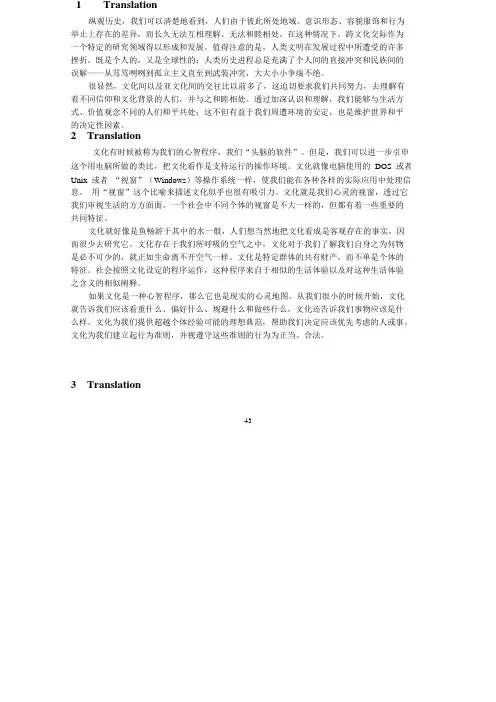
1 Translation纵观历史,我们可以清楚地看到,人们由于彼此所处地域、意识形态、容貌服饰和行为举止上存在的差异,而长久无法互相理解、无法和睦相处。
在这种情况下,跨文化交际作为一个特定的研究领域得以形成和发展。
值得注意的是,人类文明在发展过程中所遭受的许多挫折,既是个人的,又是全球性的;人类历史进程总是充满了个人间的直接冲突和民族间的误解——从骂骂咧咧到孤立主义直至到武装冲突,大大小小争端不绝。
很显然,文化间以及亚文化间的交往比以前多了,这迫切要求我们共同努力,去理解有着不同信仰和文化背景的人们,并与之和睦相处。
通过加深认识和理解,我们能够与生活方式、价值观念不同的人们和平共处;这不但有益于我们周遭环境的安定,也是维护世界和平的决定性因素。
2 Translation文化有时候被称为我们的心智程序,我们“头脑的软件”。
但是,我们可以进一步引申这个用电脑所做的类比,把文化看作是支持运行的操作环境。
文化就像电脑使用的DOS或者Unix或者“视窗”(Windows)等操作系统一样,使我们能在各种各样的实际应用中处理信息。
用“视窗”这个比喻来描述文化似乎也很有吸引力。
文化就是我们心灵的视窗,透过它我们审视生活的方方面面。
一个社会中不同个体的视窗是不大一样的,但都有着一些重要的共同特征。
文化就好像是鱼畅游于其中的水一般,人们想当然地把文化看成是客观存在的事实,因而很少去研究它。
文化存在于我们所呼吸的空气之中,文化对于我们了解我们自身之为何物是必不可少的,就正如生命离不开空气一样。
文化是特定群体的共有财产,而不单是个体的特征。
社会按照文化设定的程序运作,这种程序来自于相似的生活体验以及对这种生活体验之含义的相似阐释。
如果文化是一种心智程序,那么它也是现实的心灵地图。
从我们很小的时候开始,文化就告诉我们应该看重什么、偏好什么、规避什么和做些什么,文化还告诉我们事物应该是什么样。
文化为我们提供超越个体经验可能的理想典范,帮助我们决定应该优先考虑的人或事。
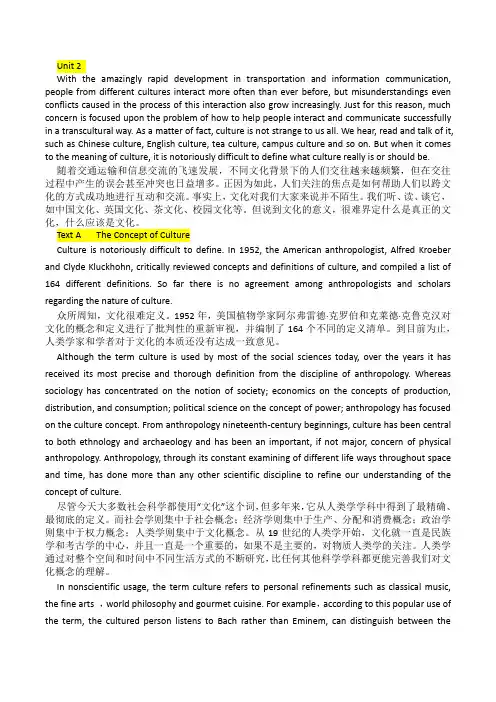
Unit 2With the amazingly rapid development in transportation and information communication, people from different cultures interact more often than ever before, but misunderstandings even conflicts caused in the process of this interaction also grow increasingly. Just for this reason, much concern is focused upon the problem of how to help people interact and communicate successfully in a transcultural way. As a matter of fact, culture is not strange to us all. We hear, read and talk of it, such as Chinese culture, English culture, tea culture, campus culture and so on. But when it comes to the meaning of culture, it is notoriously difficult to define what culture really is or should be.随着交通运输和信息交流的飞速发展,不同文化背景下的人们交往越来越频繁,但在交往过程中产生的误会甚至冲突也日益增多。
正因为如此,人们关注的焦点是如何帮助人们以跨文化的方式成功地进行互动和交流。
事实上,文化对我们大家来说并不陌生。
我们听、读、谈它,如中国文化、英国文化、茶文化、校园文化等。


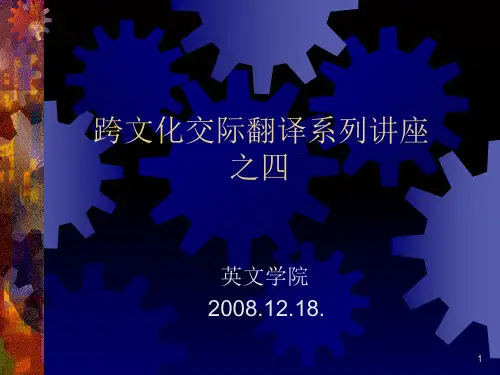

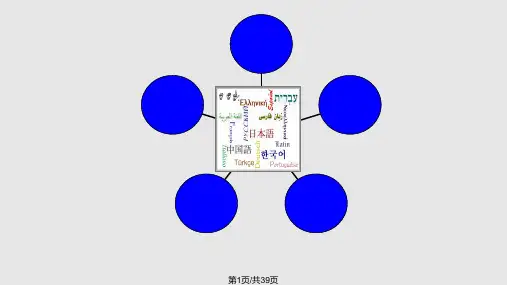
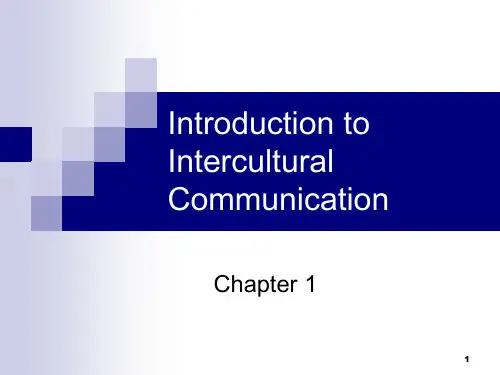
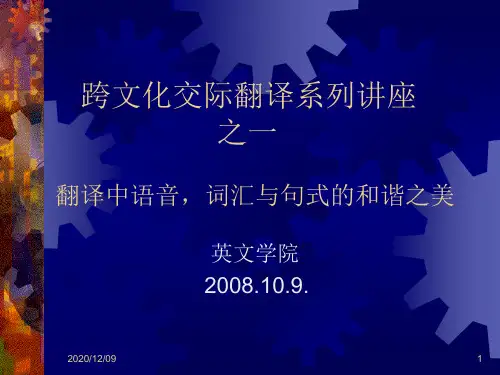

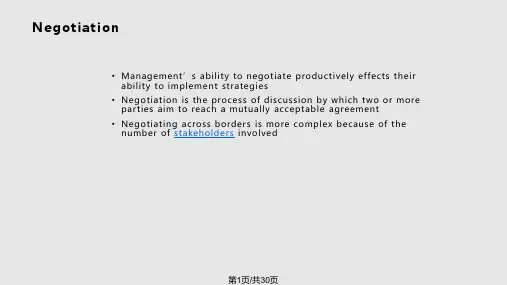
U1reading1跨文化交际日益引起人们的注意的原因:是由于交通工具的进步与通讯手段的发展使得不同国家、不同种族、不同民族的人能够频繁地接触和交往。
L。
S。
Harms认为,在世界范围内的交际经历了五个阶段:A语言的产生; B文字的使用; C印刷技术的发明; D近百年交通工具的进步和通讯手段的迅速发展; E 跨文化交际。
近二十年来的交际是以跨文化为特征的。
二、对跨文化交际的不同理解有的人认为每个人在文化上都是独特的,所以任何两个人之间的交际都是跨文化交际。
文化通常不是指个人的行为,而是指一个群体的生活方式和习惯.作者认为作跨国、跨种族、跨民族。
研究不仅应该是跨文化交际研究包括的内容,而且应该是放在首位的。
在研究一个国家的文化特点时,我们的眼光首先应集中在它的主流文化上,其次才注意它的亚文化和地区文化的特点含义:人们应用符号并借助媒介交流信息的行为与过程;人与人之间直接交往活动;通过媒介进行的信息交流与沟通活动。
人类传播的发展:信息符号传播:手势、有限的声音、体语符号、其它符号、实物口语传播媒介传播传播类型:非人类传播与人类传播伴随人类产生发生出现;不同民族相互接触与融洽的结果;交通和通讯工具的发展促进跨文化交际的发展含义:具有不同文化背景的人们之间进行的交际往来或信息传播与沟通活动文化在跨文化交际中的地位:是跨文化交际的核心;文化的复杂性影响跨文化研究;文化涵盖历史与现实、实物与制度及观念、稳定性与能动性、群体特点与地区及个体差异影响跨文化交际的主要因素:民族的历史与传统、宗教思想、价值观念、社会组织形式、风俗习惯、政治制度、社会发展阶段case1主角被埃及人邀请去家里吃丰盛的大餐,他用餐后说食物很好.在这种情况下,理查德错误可能是他选择赞美食物本身,而不是整个晚上,的食物.他的主人和女主人就好像他参加了一个艺术展,称赞这位艺术家说:多么美丽的你的照片。
在日本工作的时候他犯了一个错,开会的时候解释试图让大家明白每个人也许都会跟他一样以减轻罪过,结果又错了.相比之下,美国人强调个性价值和容易维护个体差异时,他们似乎理由与组织的目标或价值观冲突.在这种情况下:理查德…年代错误是在努力保护自己.case2对于学生来说,向老师提问很多问题是不尊重的,另一方面,提问一些跟老师说的无关的也如此,代表你没有听课。
Unit 2 Page 60 Unit 3 Page 96Unit 5 Page 175 Unit 6 Page 215Case 2A common cultural misunderstanding in classes involves conflicts between what is said to be direct communication style and indirect communication style. In American culture, people tend to say what is on their minds and to mean what they say. Therefore, students in class are expected to ask questions when they need clarification. Mexican culture shares this preference of style with American culture in some situations, and that‘s why the students from Mexico readily adopted the techniques of asking questions in class. However, Korean people generally prefer indirect communication style, and therefore they tend to not say what is on their minds and to rely more on implications and inference, so as to be polite and respectful and avoid losing face through any improper verbal behavior. As is mentioned in the case, to many Koreans, numerous questions would show a disrespect for the teacher, and would also reflect that the student has not studied hard enough.Case 3The conflict here is a difference in cultural values and beliefs. In the beginning, Mary didn’t realize that her Dominican sister saw her as a member of the family, literally. In the Dominican view, family possessions are shared by everyone of the family. Luz was acting as most Dominican sisters would do in borrowing without asking every time. Once Mary understood that there was a different way of looking at this, she would become more accepting. However, she might still experience the same frustration when this happened again. She had to find ways to cope with her own emotional cultural reaction as well as her practical problem (the batteries running out).Case 6When a speaker says something to a hearer, there are at least three kinds ofmeanings involved: utterance meaning, speaker’s meaning and hearer’s meaning. In the dialogue, when Litz said ‘How long is she going to stay?’ she meant to say that if she knew how long her mother-in-law was going to stay in Finland, she would be able to make proper arrangements for her, such as taking her out to do some sightseeing. However, her mother-in-law overheard the conversation, and took Litz’s question to mean “Litz does not want me to stay for long”. From the Chinese point of view, it seems to be inappropriate for Litz to ask such a question just two days after her mother-in-law’s arrival. If she feels she has to ask the question, it would be better to ask some time later and she should not let her mother-in-law hear it.Case 7Keiko insists on giving valuable gifts to her college friends, because in countries like Japan, exchanging gifts is a strongly rooted social tradition. Should you receive a gift, and don’t have one to offer in return, you will probably create a crisis. If not as serious as a crisis, one who doesn’t offer a gift in return may be considered rude or impolite. Therefore, in Japan, gifts are a symbolic way to show appreciation, respect, gratitude and further relationship.Keiko obviously has taken those used items from Mary, Ed and Marion as gifts, for she probably doesn’t know that Americans frequently donate their used household items to church or to the community. Mary, Ed and Marion would never consider those used household items given to Keiko as gifts. No wonder they felt very uncomfortable when they received valuable gifts in return.Case 10In Japan, a company is often very much like a big family, in which the manger(s) will take good care of the employees and the employees are expected to devote themselves to the development of the company and, if it is necessary, to sacrifice their own individual interests for the interests of the company, from which, in the long run, the employees will benefit greatly. But for the French, a company is just a loosely- knit social organization wherein individuals are supposed to take care of themselves and their families. Moreover, the way the French make decisions in the family might also be different from the typical Japanese one, which may not often involve females and the power to decide usually lies with the dominating male. As there are such cultural differences between the Japanese and the French, Mr. Legrand’s decision made Mr. Tanaka feel dumbfounded.Case 12In this case, it seems that the Chinese expectations were not fulfilled. First, having two people sharing host responsibilities could be somewhat confusing to the hierarchically minded Chinese. Second, because age is often viewed as an indication of seniority, the Chinese might have considered the youth of their Canadian hosts as slight to their own status. Third, in China, it is traditional for the host to offer a welcome toast at the beginning of the meal, which is the reciprocated by the guests; by not doing so, the Canadian might be thought rude. The abrupt departure of the Chinese following the banquet was probably an indication that they were not pleased with the way they were treated. The Canadians’ lack of understanding of the Chinese culture and the Chinese ways of communication clearly cost them in their business dealings with the visiting delegation.Case 17When these two men separate, they may leave each other with very different impressions.Mr Richardson is very pleased to have made the acquaintance of Mr Chu and feels they have gotten off to a very good start. They have established their relationship on a first-name basis and Mr Chu’s smile seemed to indicate that he will be friendly and easy to do business with. Mr Richardson is particularly pleased that he had treated Mr Chu with respect for his Chinese background by calling him Hon-fai rather than using the western name, David, which seemed to him an unnecessary imposition of western culture.In contrast, Mr Chu feels quite uncomfortable with Mr Richardson. He feels it will be difficult to work with him, and that Mr Richardson might be rather insensitive to cultural differences. He is particularly bothered that, instead of calling him David or Mr Chu, Mr Richardson used his given name, Hon-fai, the name rarely used by anyone, in fact. It was this embarrassment which caused him to smile. He would feel more comfortable if they called each other Mr Chu and Mr Richardson. Nevertheless, when he was away at school in North America he learned that Americans feel uncomfortable calling people Mr for any extended period of time. His solution was to adopt a western name. He chose David for use in such situations.Case 19Talking about what’s wrong is not easy for people in any culture, but people in high-context countries like China put high priority on keeping harmony, preventing anyone from losing face, and nurturing the relationship. It seems that Ron Kelly had to learn a different way of sending message when he was in China. At home in Canada he would have gone directly to the point. But in China, going directly to the problem with someone may suggest that he or she has failed to live up to his or her responsibility and the honor of his or her organization is in question. In high-context cultures like China, such a message is serious and damaging. In low-context cultures, however, the tendency is just to “spit it out”, to get it into words and worry about the result later. Senders of unwelcome messages use objective facts, assuming, as with persuasion, that facts are neutral, instrumental, and impersonal. Indirectness is often the way members of high-context cultures choose to communicate about a problem. Case 21Sometimes our best intentions can lead to breakdowns (故障)in cross-cultural communication. For example, one of the very common manners of touching --- handshaking --- may result in conflict when performed with no consideration of cultural differences. Among middle-class North American men, it is customary to shake hands as a gesture of friendship. When wanting to communicate extra friendliness, a male in the United States may, while shaking hands, grasp with his left hand his friend’s right arm. However, to people of Middle Eastern countries, the left hand is profane (亵渎的) and touching someone with it is highly offensive. Therefore, in Vernon’s eyes, Kenneth was actually an extremely offensive message to him. Case 22In Puerto Rican culture, as in some other Latin American and Eastern cultures, it is not right for a child to keep an eye-contact with an adult who is accusing him or her, while in the United States, failing of meeting other person’s eye accusing him or her would be taken as a sign of guiltiness. As the principal knew little about this cultural difference in using eye-contact, he decided that the girl must be guilty. Generallyspeaking, avoiding eye-contact with the other(s) is often considered as an insult in some cultures, but may signify respect for authority and obedience in other cultures. Case 25For people from the American culture and western European cultures, one’s time should be scheduled into segments or compartments which are to be kept discrete from one another. They prefer to do one thing at a time. They will be annoyed when they have made an appointment with somebody, only to find a lot of other things going on at the same time. They don’t like to interrupt others and be interrupted by other while they are doing something. In contrast, people from many other cultures including the Chinese culture are more likely to operate with several people, ideas, or matters simultaneously. They are more easily distracted and subject to interruptions, which they would not usually mind very much. The miscommunication between Katherine and the director can be ascribed to their lack of knowledge about each other’s way of using time.In this case, to the Chinese director as well as many other Chinese people, it is natural to handle the other things which needed to be dealt with immediately. He may have thought that, in this way, he utilized the time best. But to Katherine and most Westerners, it’s quite different. They tend to do things strictly according to their schedule and appointments with others, which is their concept of using time best.高语境交流和低语境交流(由高到低排列)Japanese, Chinese, Korean, African American, Native American, Arab, Greek, Latin,Italian,English,Frech,Amercian,Scandinavian,German,German-Swiss。